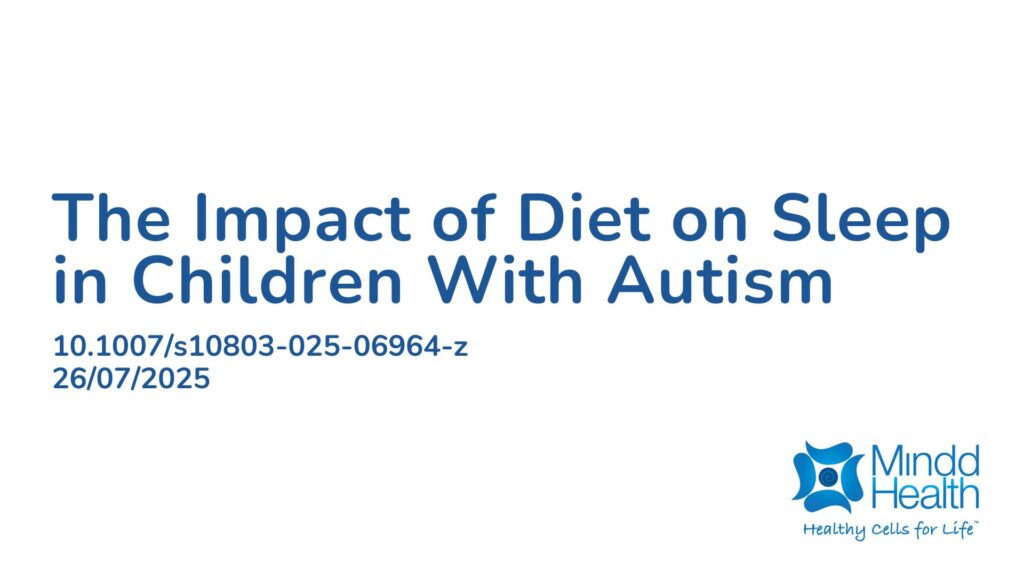Summary:
Autism spectrum disorder (ASD) is often linked with differences in eating behaviours and higher rates of sleep problems compared to the general population. Research has shown that children and adolescents with ASD are more likely to have selective diets, lower fruit and vegetable intake, and higher consumption of processed foods. At the same time, difficulties such as delayed sleep onset, frequent night wakings, and daytime tiredness are common. While both diet and sleep have been studied separately in ASD, fewer studies have explored how they might be connected. This study examined the dietary habits and sleep quality of children and adolescents with ASD compared to non-autistic peers. A total of 158 participants with ASD and 77 without, aged 6–17 years, were recruited in Spain. Diet was assessed using a food frequency questionnaire, and sleep quality was evaluated with standardised questionnaires. Children with ASD consumed more sugar and fewer fruits and vegetables than controls, while adolescents showed particularly high intake of sugary drinks. Across all ages, those with ASD experienced poorer sleep, taking longer to fall asleep, having more night disturbances, and experiencing greater daytime tiredness. Higher fruit and vegetable consumption was linked with better sleep in children with ASD. In adolescents, sugar intake showed a mixed relationship with sleep, suggesting possible short-term effects but potential long-term risks. The findings suggest that diet may influence sleep quality in children with ASD, and that promoting healthier eating patterns could support better rest and overall well-being.
Abstract:
This study investigates dietary patterns and sleep quality in children and adolescents on the autism spectrum, compared to non-autistic peers. It explores the relationship between dietary habits and sleep quality, aiming to identify modifiable factors that could enhance well-being in ASD individuals. A cross-sectional case–control study was conducted with 158 participants on the autism spectrum and 77 non-autistic individuals aged 6–17 years in Spain. Dietary patterns were assessed using a validated food frequency questionnaire, while sleep quality was measured with the Children’s Sleep Habits Questionnaire (CSHQ-SP) and Pittsburgh Sleep Quality Index (PSQI). Statistical analyses, including non-parametric tests and Spearman’s correlation, were performed to examine differences and associations. Children on the autism spectrum displayed higher sugar intake and lower consumption of fruits and vegetables compared to non-autistic peers. ASD adolescents consumed more sugary beverages, with less pronounced differences in other food categories. Sleep quality was significantly poorer in the ASD group across all age cohorts, characterized by increased sleep latency, parasomnias, and daytime dysfunction. Positive associations were found between fruit and vegetable intake and improved sleep quality in ASD children. Unexpectedly, adolescents on the autism spectrum showed a complex relationship between sugar consumption and sleep quality, indicating potential short-term benefits but long-term risks. This study highlights the interplay between diet and sleep quality in ASD populations. Interventions promoting healthier eating habits, such as increased fruit and vegetable intake and reduced sugar consumption, could improve sleep outcomes and overall well-being in this vulnerable population.
Article Publication Date: 26/07/2025
DOI: 10.1007/s10803-025-06964-z



